DLR at the Hydrogen Technology World Expo Europe 2025 in Hamburg
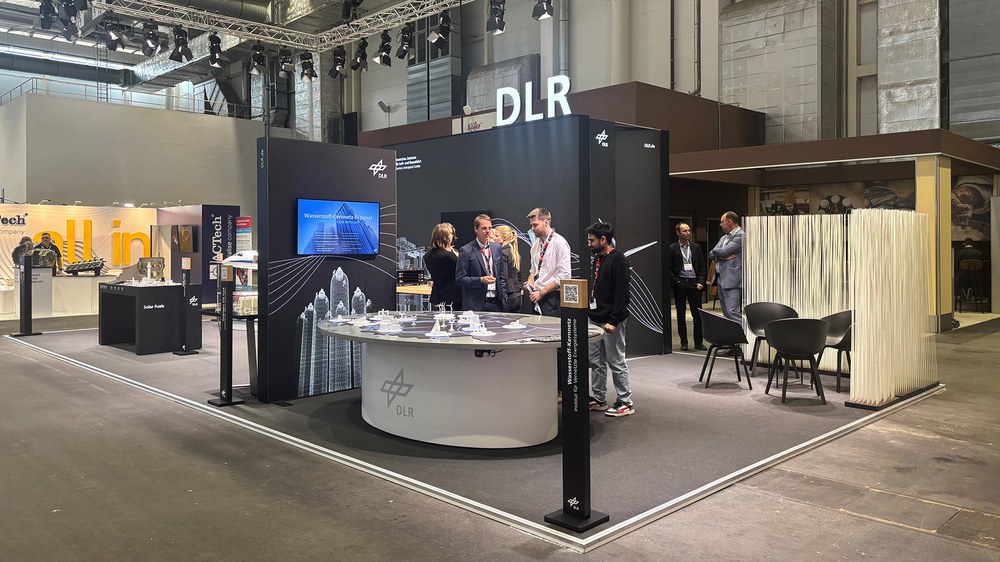
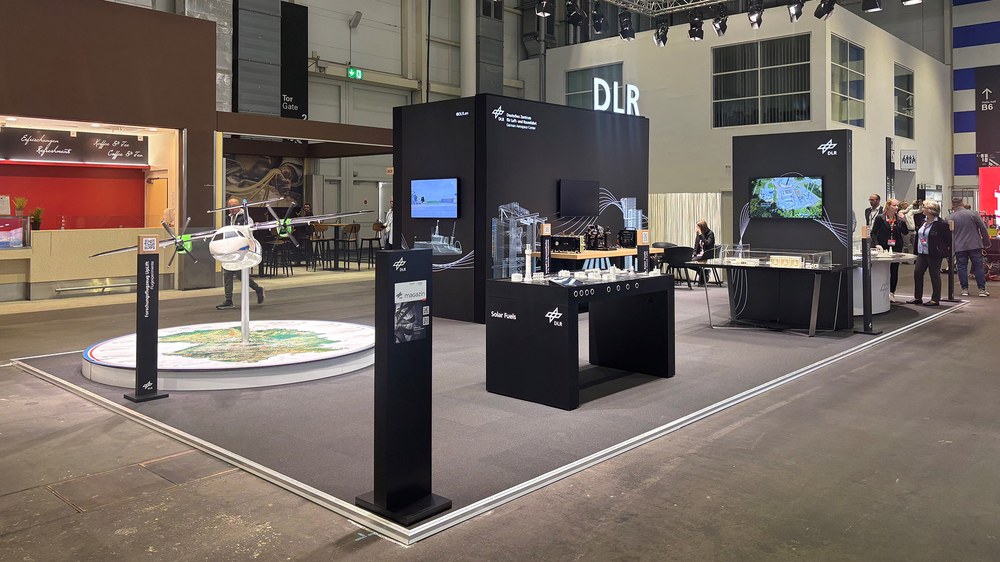
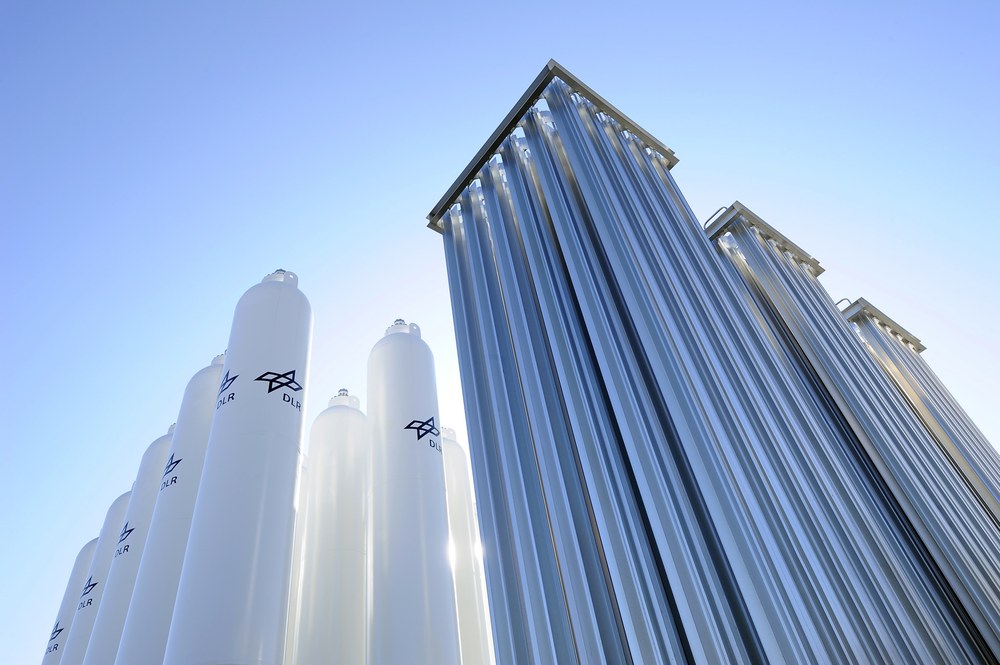
- At the Hydrogen Technology World Expo Europe, DLR will showcase its research on hydrogen for reliable, efficient and climate-compatible mobility and energy supply.
- The focus will be on technologies, innovations and projects in cooperation with industry.
- Focus: Energy, energy storage, hydrogen, infrastructures, decarbonisation, digitalisation, mobility of the future
As Germany and Europe transition towards sustainable transport, industry and an independent energy supply, hydrogen will play a key role. At the Hydrogen Technology World Expo Europe, taking place from 21 to 23 October 2025 in Hamburg, the German Aerospace Center (Deutsches Zentrum für Luft- und Raumfahrt; DLR) will present current topics and projects from its hydrogen research – from production and storage to utilisation – at its stand in Hall 5, Stand 5A20, and at the 'Bremen & Bremerhaven – Home of Innovation' joint stand in Hall 6, Stand 6L35.
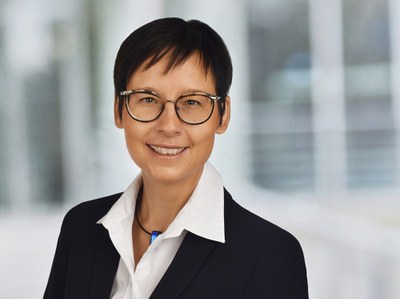
Building a global hydrogen economy across sectors, in collaboration with industry, opens up opportunities for new technologies and business models that create value in Germany. Hydrogen is particularly attractive as an energy carrier due to its versatility – for supplying electricity and heat, as a storage medium to balance fluctuating renewable energy sources, as a process gas in industry or as a basis for alternative fuels and clean mobility. Economic viability is a key aspect and, along with climate protection and safety, forms the basis for our research questions.
Germany's future hydrogen core network
The German hydrogen core network is the largest planned hydrogen network in Europe, conceived to connect the sites where hydrogen is produced, stored and consumed in Germany. The network is to be completed by the long-distance gas network operators by 2032 and will cover a total length of approximately 9000 kilometres. As part of this effort, there are also plans to repurpose part of the existing natural gas infrastructure to make up approximately 60 percent of the core network. The overall hydrogen system surrounding the core network cannot be operated without storage tanks, as hydrogen production and consumption do not occur simultaneously and will therefore require buffering.
DLR hydrogen site in Lampoldshausen
In Lampoldshausen, DLR has unique expertise in the use of large quantities of hydrogen. Each year, the site requires up to 300 tonnes of liquid hydrogen and over 20 tonnes of gaseous hydrogen to test space propulsion systems. By setting up an additional hydrogen testing infrastructure, DLR is strengthening its role as a technology and development partner. In Lampoldshausen, hydrogen-based systems and components can be tested and further developed on several test benches. Thanks to its modular design, the testing infrastructure can be flexibly adapted to suit the specific requirements and objectives of each research project.
Solar fuels – carbon dioxide-neutral fuels from solar energy
The 'Solar Fuels' exhibit uses examples, interactive displays and diagrams to show the paths taken by solar-derived fuels – hydrogen, ammonia, kerosene and methanol – from production to application. It demonstrates how solar energy can be converted into electricity, hydrogen and synthesis gas in a solar-thermal plant. Further industrial processes (including high-temperature electrolysis) then produce chemical energy carriers, enabling applications in select sectors such as transport, industry and agriculture.
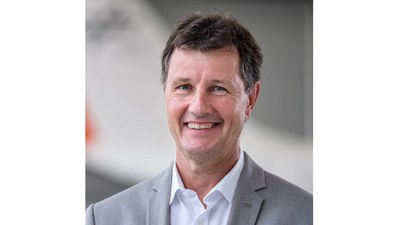
Hydrogen is one of the most promising energy carriers for aviation in the future. That is why DLR is conducting research into the entire system architecture for hydrogen propulsion – from concept development and system design to testing in realistic environments. DLR is collaborating with industrial companies and research institutions on the key hydrogen-related topics in aviation.
UpLift – a flying laboratory for environmentally compatible aviation technologies
With its D328® UpLift research aircraft, DLR is introducing a versatile flying test bench. It is used, for example, to test alternative propulsion concepts such as fully synthetic fuels or hydrogen technologies for climate-compatible aviation. The D328® UpLift expands Europe's largest civil research fleet with a flexible test aircraft. In addition to DLR’s own aviation research, it can also be used by national industry, small and medium-sized enterprises, start-ups and other research organisations to test new, environmentally compatible fuels, systems and propulsion technologies under real flight conditions. A model of the research aircraft is on display at the DLR stand.
Smart control for hydrogen in fuel cells
The 'Smart Hydrogen Control for Fuel Cells' exhibit shows a functionally-integrated anode module for supplying hydrogen to fuel cells. The core of the module is the embedded control software for hydrogen management. This enables adaptive regulation of operating conditions – especially during system start-up and shutdown – and ensures efficient, safe and low-wear operation under variable environmental conditions. Thanks to its compact, modular design, the system can be flexibly integrated into various applications, such as aircraft or ground vehicles.
Fibre composite tank for liquid hydrogen
At the joint stand of the State of Bremen and the Center for Eco-efficient Materials & Technologies (ECOMAT), DLR is presenting a liquid hydrogen tank for integration into future climate-compatible aircraft concepts. For this purpose, DLR researchers have developed a dedicated test facility for liquid hydrogen tanks. The external tank on display serves as a vacuum insulation shell, providing optimum thermal shielding. At the same time, it defines the 'control volume' for checking the tightness of the internal tank. The tank is manufactured using autoclave resin infusion, which ensures that it is both very strong and gas tight. The design is specifically engineered to withstand mechanical stresses and ensure safe operation under liquid hydrogen conditions.
Related links
- Featured topic: Hydrogen – the energy source of the future
- Hydrogen Technology Expo Europe
- ECOMAT Bremen
- Participating DLR institutes and facilities – Institute of Lightweight Systems, Institute of Future Fuels, Institute of Engineering Thermodynamics, Institute of Networked Energy Systems, Institute of Space Propulsion, Flight Experiments Facility and Virtual Product House
- DLR site Bonn, Bremen, Braunschweig, Hamburg, Lampoldshausen, Oldenburg and Stuttgart
